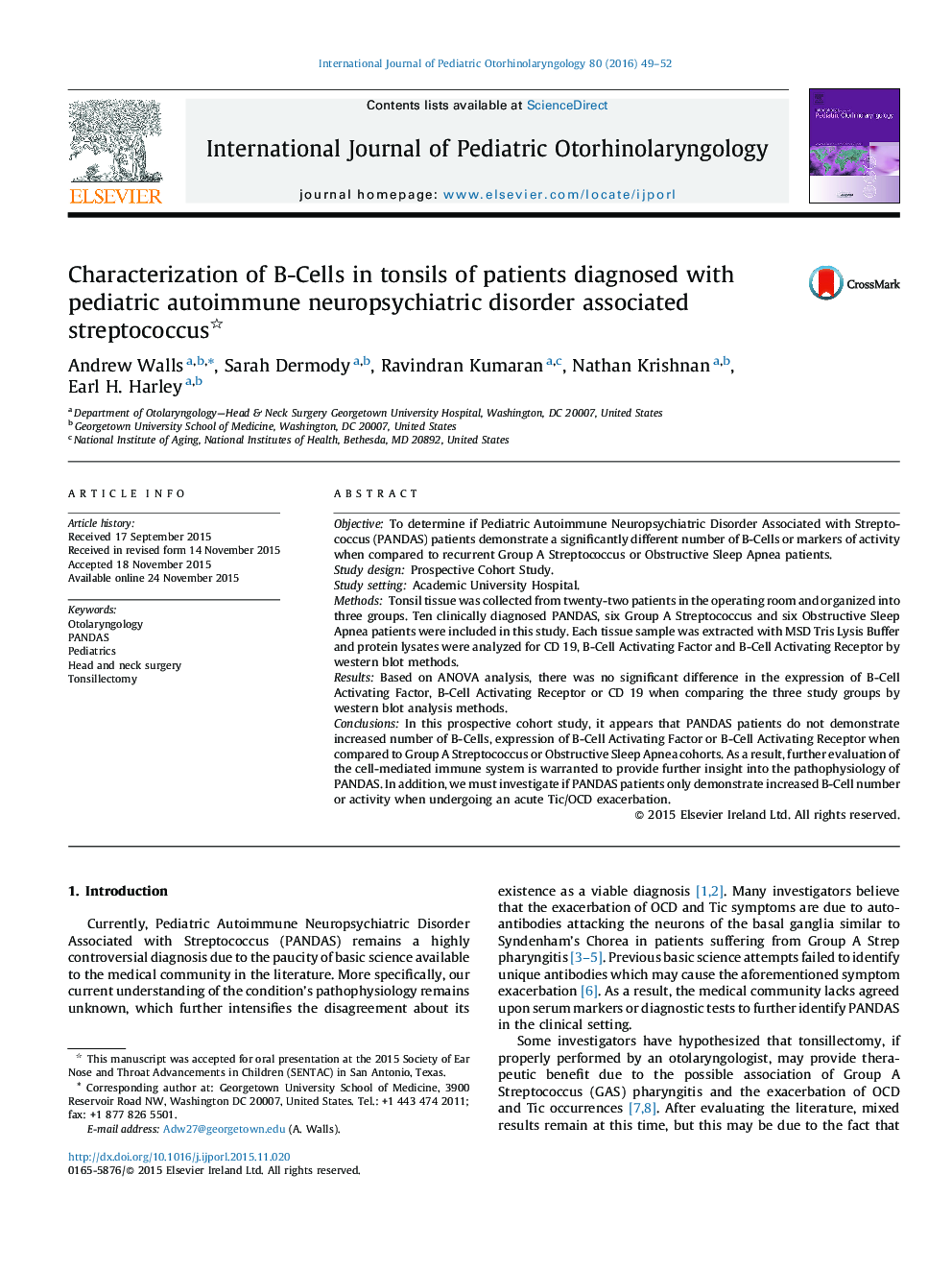| Article ID | Journal | Published Year | Pages | File Type |
|---|---|---|---|---|
| 4111338 | International Journal of Pediatric Otorhinolaryngology | 2016 | 4 Pages |
ObjectiveTo determine if Pediatric Autoimmune Neuropsychiatric Disorder Associated with Streptococcus (PANDAS) patients demonstrate a significantly different number of B-Cells or markers of activity when compared to recurrent Group A Streptococcus or Obstructive Sleep Apnea patients.Study designProspective Cohort Study.Study settingAcademic University Hospital.MethodsTonsil tissue was collected from twenty-two patients in the operating room and organized into three groups. Ten clinically diagnosed PANDAS, six Group A Streptococcus and six Obstructive Sleep Apnea patients were included in this study. Each tissue sample was extracted with MSD Tris Lysis Buffer and protein lysates were analyzed for CD 19, B-Cell Activating Factor and B-Cell Activating Receptor by western blot methods.ResultsBased on ANOVA analysis, there was no significant difference in the expression of B-Cell Activating Factor, B-Cell Activating Receptor or CD 19 when comparing the three study groups by western blot analysis methods.ConclusionsIn this prospective cohort study, it appears that PANDAS patients do not demonstrate increased number of B-Cells, expression of B-Cell Activating Factor or B-Cell Activating Receptor when compared to Group A Streptococcus or Obstructive Sleep Apnea cohorts. As a result, further evaluation of the cell-mediated immune system is warranted to provide further insight into the pathophysiology of PANDAS. In addition, we must investigate if PANDAS patients only demonstrate increased B-Cell number or activity when undergoing an acute Tic/OCD exacerbation.
